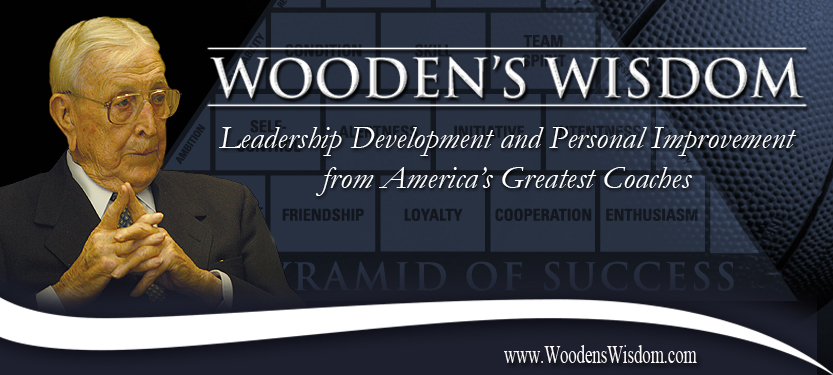 |
|
| Wooden's Wisdom - Volume 12 | Issue 618 |
| Craig Impelman Speaking | Championship Coaches | Champion's Leadership Library Login | |
|
"A LEADER DOESN’T HAVE TO BE LOUD" (LIZ WISEMAN AND JOHN WOODEN) Liz Wiseman is a bestselling author, researcher, and elite leadership coach. In her New York Times bestseller, Multipliers: she researched over 150 leaders worldwide.
Liz Wiseman and Coach Wooden both agree that Self-Control and Poise are essential character traits for good leadership.
In her book, Wiseman describes how a leader who feels their personality must dominate the environment can inadvertently hurt the team’s performance. She refers to this person as the "Always On" leader:
"The "Always On" leader is a dynamic, charismatic leader who exudes energy; he or she is always engaged, always present, and always has something to say. These are the leaders with a big personality that can fill a room.
They assume that their energy is contagious, like a virus to be caught by anyone in their presence. But, like the common cold, this leader can be draining. As he expands, like a gas consuming all the available oxygen, others suffocate; most find him just plain exhausting.
Soon people avoid making eye contact or having encounters with him, thinking, I just don’t have the energy right now. He becomes white noise. His endless spray of speech becomes muffled and sometimes completely unheard by the people he leads. When the leader is always on, others maybe become always off."
The "Always On" leader can become more effective if he or she stops repeating themselves for emphasis and instead "says things once". This creates a reason for others to chime in and build on the idea. The leader should then set expectations for others to speak up.
John Wooden never sought to be the center of attention. He was always clear, concise, and compelling. He would never tell you what to think. He would always cause you to think.
What effect do you have on others?
Yours in Coaching, Craig Impelman
|
The Family’s Homely Man There never was a family without its homely man, Edgar Albert Guest (1881-1959)
|
|
For more information visit www.woodenswisdom.com |
|
© Copyright 2026 WoodensWisdom.com | # of Times Wooden's Wisdom Issues Opened: 7,858,012
Hosting & Design by:EverydayWebDesign.com